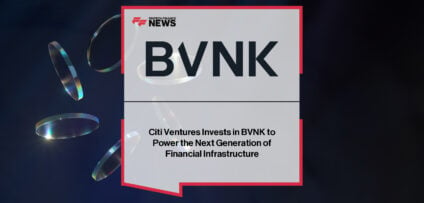Breaking News

The Forces Behind Fintech
Fintech has received much deserved attention in the past few years. Consumers of financial services have access to a wider range of products at lower cost and with better customer experience than ever before. Importantly, fintech is starting to reach people who were previously excluded from mainstream financial services. After a decline following the referendum result, VC money is piling back into UK fintech. Year on year growth for UK VC investment in fintech was up 37% at $564m in the first half of 2017 versus the same period a year earlier.
While these are all positive developments, critics point out that most of the successful fintech companies are only delivering incremental improvements to niche aspects of our financial lives. Furthermore, many of these improvements can be attributed to a customer experience that is no longer ambivalent about the customer, as is often the case with incumbent financial products. We’re still waiting for the step change in the way we access financial services, and indeed who has access to them.
There are at least a couple reasons to expect that we’ll see this step change. They relate to two of the important forces driving fintech, and their impact on incumbent financial institutions.
Regulation: Compounding the Innovator’s Dilemma
First and foremost is regulation. Speak with executives at most large financial institutions and they’ll tell you that the majority of their change and innovation budget is being directed at the raft of new regulation coming down the line in the next couple years. While there are some genuinely exciting projects within incumbent financial institutions, once you push the buzzwords to the side you realise that most of the energy is being expended to simply follow the rules.
Complicating the picture is the fact that these regulations can pull in opposite directions: the openness of PSD2 and Open Banking versus the stringency of GDPR. There is good reason to believe that a significant percentage of the individuals in the financial industry are culturally unsuited to embrace this change at the best of times. In the current environment, incumbents could be forgiven for thinking some of these new directives are at odds, making the most likely approach a cautious and conservative one. The difference here is that these changes aren’t just another set of rules. They are altering the operating model of financial institutions and resetting the competitive landscape in favour of challengers.
Big Tech Set to Play a Bigger Role
Fintechs are chipping away at business lines being transformed by regulation, however, an even
bigger threat to traditional finance comes from “big tech.” This is particularly true for the market in
consumer financial services and very small businesses, who are often treated in a similar way to
individuals from a risk perspective.
Consider On Deck Capital, a US-based online business lender, which was an early fintech company that has successfully scaled. In its first decade, On Deck has lent more than $7bn to 70,000 US small businesses. Square Capital, the financing arm of Square, has lent more than $1.5 billion to 140,000 small businesses in the US in just over two years. Amazon and PayPal have each lent more than $3 billion to merchants on their platforms, and have seen increasing uptake in the past 12 months.
Financial institutions have traditionally been underpinned by high levels of scale and trust, both required to successfully operate in highly regulated markets. Until now, large tech companies haven’t shown an appetite to fully go into the high-touch regulated industry of financial services.
As they find themselves under increasing regulatory scrutiny, however, they could easily exploit their own scale and relationships with consumers to provide a broad range of financial utilities. Google’s recent announcement of Tez, a mobile payment app initially focused on India is an example of how quickly tech companies can bring these products to market, reaching tens and even hundreds of millions of people.
Data Capabilities Will Define Success
Data is the common theme of recent regulation and big tech’s advantage in providing financial services. More precisely, it’s how this data is used and a provider’s ability to apply it in intelligent ways to reduce the time to value for the customer. In an attempt to set the rules of engagement for how third parties can use our data, regulation has accelerated the commoditisation of valuable data. This has created an opening for fintechs and big tech alike. What remains to be seen is to what extent big tech will now turn its own hand to opportunities it has helped enable.
This picture is fast emerging in the consumer financial services arena, but the opportunities are as great if not greater in the B2B space. There are many more structural impediments to changing the way B2B financial services are delivered and consumed, not least of all the lack of high quality data on private companies. But this too is changing. My company, currently the fastest growing independent provider of private company information, is working hard to remove these barriers.
One of the consequences of our work is that an increasing percentage of our customers are machines. That’s because the companies we serve are finding opportunities to integrate and automate the way they do business, allowing them to identify the right customers, take risk more intelligently and improve the customer journey. Regulation will continue to shift the landscape in favour of greater competition, just as big tech companies will continue to seek and find attractive markets for the application of data and data-related capabilities. This will create a rich opportunity for fintechs, especially those with deep domain expertise, and lead to a fundamental shift in the way that consumers and businesses access financial services.
Justin Fitzpatrick is co-founder and COO of DueDil, the fastest growing independent provider of private company information. He is also a founding board member of Innovate Finance, a not-for-profit members’ organisation that promotes the UK’s global fintech community. The views expressed are his own.
- EXCLUSIVE: “Passion Project” – Brice van de Walle, Mastercard in ‘The Fintech Magazine’ Read more
- FreedomPay Drives Global Merchant Innovation Read more
- FIS Brings AI-Powered Advancements to Seamless, Personalized Digital Banking Experiences Read more
- Citi Ventures Invests in BVNK to Power the Next Generation of Financial Infrastructure Read more
- Nearly Two-Thirds of Global Retailers Say Payment Method Flexibility Drives Revenue Growth, ACI Worldwide Survey Finds Read more













